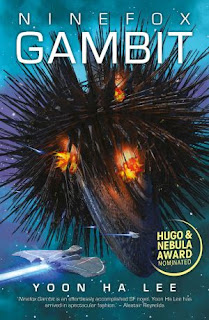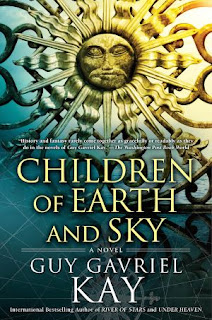So, me and the wife were walking our dog in the park one Saturday evening when we saw this female German Sheppard mutt looking all lost and terrified. The wife, being the heart of us two, points out to me that the dog is probably lost and she looks terrified. Me, not being the heart in the relationship, just hoped her owners would show up. Well, one can't ignore one's heart, as my wife keeps repeating in the hope I am listening, so I end up attaching a leash to the dog's collar and heroically attempting to save the dog.
The plan was as follows. Step 1: take the dog to the vet. Step 2: the vet will know what to do. Additional info: the dog was walking really strange, was terrified of everything, but especially crossing streets and was bleeding from between the legs, occasionally appearing to try to piss and nothing coming out. Suspecting a car hit and maybe internal bleeding, I rushed the dog to the vet I know in the area, who also treats my dog. Imagine doing that with a 20 kilos dog who is afraid of streets, basically.
Step 1 went to shit when I realized the vet was closed at that hour on Saturday. I mean, nothing ever happens to dogs in the weekend, right? I tried calling pet ambulances, they all refused to come, claiming not enough capacity. Finally I called the wife to come with the car and drive us to a nearby non stop veterinarian clinic.
The situation looked like this: female dog in heat (not internal bleeding) which was probably not hit by a car, but walks funny because she is probably not right in the head, first suspected to be 5 to 7 years old, but then age adjusted to over 8, erratically aggressive (although what aggressive meant to the doctor seemed to be a low growl of annoyance). Also, the doctor didn't know any shelters, groups that take care of lost dogs or anything like that. Surely no dogs get lost and found and then brought to vets. He had no idea what to do. So Step 2 went to shit when the vet told us the dog was not microchipped, was probably abandoned and, for all intents and purposes, was now ours, since no one adopts old dogs.
We decided to pay for some tests to figure out what is wrong with the dog and to keep her in the clinic, since she's a big unpredictable female dog in heat and our dog is male. We did that daily, paying a lot of money for it, until around Tuesday, when the doctors decided that the dog problems were probably neurological and that her uterus was malformed and probably would have caused the dog to die in the near future unless operated and removed. I was about to authorize the operation, too, and was thinking of names for the dog. Since our dog is named Tyrion, naturally she would have been Arya, but for the fact the dog was older, so maybe Sansa - she was traumatized and afraid of everything, too. In the end I was going for Lysa - since that was the older crazy aunt in Games of Thrones.
And here comes serendipity. A young woman comes to the clinic and asks if it is possible for dogs to run away from home in order to die. Apparently, her dog, staying with her parents, ran away from home and said parents were too horrified to tell her of that until that day. Stranger still, in the rare occasions that the dog was getting lost, she always returned home, which she now failed to do. No, the girl didn't look for found dog ads (which I posted all over the Internet), she didn't ask around in the park where the dog was lost (where I told just about every dog owner to spread the word), no, she just randomly arrived at the same clinic and asked this question. Of course, it was her dog we were talking about. No, lady, when dogs run away from home they usually go to the vet to get checked out!
So, if and when the dog will get operated or receive specialized treatment for her brain issues - which apparently she had since she was a pup - is the owner's business, and we only offered our financial aid in case it was needed. Happy ending, the dog is back with her owners, with some extra medical tests done and possible solutions for her future well being on the table.
 Central Station describes a very interesting cyberpunk style of future, where amazing yet commonplace technology mixes with the traditional and with the local culture in a world in which the Solar System has been colonized. And then the book ends. Lavie Tidhar manages to imagine all of this creative world, but doesn't succeed on making the book more than the collection of short stories it actually is. That doesn't mean the book is not worth reading or that other works from the author will not benefit from the world building in it, but it feels like a missed opportunity. The book is short, it describes interactions between a surprisingly small and somehow related people and then it just ends with none of the threads in it being resolved in any way. The main character remains as the background city of Central Station, former Tel Aviv.
Central Station describes a very interesting cyberpunk style of future, where amazing yet commonplace technology mixes with the traditional and with the local culture in a world in which the Solar System has been colonized. And then the book ends. Lavie Tidhar manages to imagine all of this creative world, but doesn't succeed on making the book more than the collection of short stories it actually is. That doesn't mean the book is not worth reading or that other works from the author will not benefit from the world building in it, but it feels like a missed opportunity. The book is short, it describes interactions between a surprisingly small and somehow related people and then it just ends with none of the threads in it being resolved in any way. The main character remains as the background city of Central Station, former Tel Aviv.
 Finally, a fresh, unapologetically sci-fi story with so many interesting ideas and cultural innovation that I can barely wait for the second book in the series to come out.
Finally, a fresh, unapologetically sci-fi story with so many interesting ideas and cultural innovation that I can barely wait for the second book in the series to come out. The only fantastical element in this book, except for a ghost that makes a short appearance, is a change in location. The rest is historical fiction in some place that feels exactly like Renaissance Europe, only it has another name and other gods. Worst than that, the story is boring and the writing mediocre. I couldn't finish it.
The only fantastical element in this book, except for a ghost that makes a short appearance, is a change in location. The rest is historical fiction in some place that feels exactly like Renaissance Europe, only it has another name and other gods. Worst than that, the story is boring and the writing mediocre. I couldn't finish it.
 Cool people are those who respond to your opinions with condescension. Anything different from what they believe is ridiculous, pathetic, laughable or dangerous. I mean, they could even be right: you might have said something really stupid. But while you can handle finding out that something you were thinking is not true, they cannot. Their whole world view is based on them being right. While you might see them as a little hurtful and a bit annoying, they see you as a threat, because their truth is something they desperately cling to and any type of difference challenges their way of life.
Cool people are those who respond to your opinions with condescension. Anything different from what they believe is ridiculous, pathetic, laughable or dangerous. I mean, they could even be right: you might have said something really stupid. But while you can handle finding out that something you were thinking is not true, they cannot. Their whole world view is based on them being right. While you might see them as a little hurtful and a bit annoying, they see you as a threat, because their truth is something they desperately cling to and any type of difference challenges their way of life. This reminded me of
This reminded me of 
 Sagas and trilogies be damned!
Sagas and trilogies be damned!  There is a cover for the book that writes "Best SF Novel of the Year
There is a cover for the book that writes "Best SF Novel of the Year 

